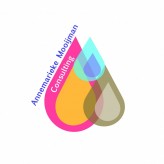
As a child, our parents and teachers always told us that sharing was good. So good that you were considered a “good child” if you were able to share you toys, your cookies, and your delicious chocolates.
How different is this when you are an adult. Suddenly whenever you invent something (and those of us who love inventing, have something invented all the time), other adults tell you that you need to “defend yourself”. Defending means that you do not enthusiastically share your knowledge and ideas to the world like one instinct-matically would do, but that you build a “Wall of Secrecy” around your invention. Or you first make a “Patent”, which means you send a bill every time someone says they like your invention and were inspired by it.
If people have spent a lot of money to do the invention, this is understandable up to a certain extend. But the reality is that many of those inventions are being developed using tax-payers money. If it is for new medicines, an environmental friendly lightbulb or a new kind of car engine… the kick-off is through university research or subsidies to research groups. Subsequently those inventions are being taken over by companies who ask those same tax-payers to pay for the patent of the invention… isn’t that paying twice?
While developing the proposal of the Biological Urban Sanitation project, we assumed that we could use university knowledge and information to make a head start on the use of Black Soldier Flies for small-scale sanitation. How wrong were we! Doors are kept locked by a couple of private firms investing in Black Soldier Flies while they hire knowledge from university under the condition they do not share (patenting is not possible because one cannot patent an animal).
What can we do? Learning by trial and error and making mistakes which likely have been made before… but nobody wanted to tell us. We will continue and sometimes progress is slow but we do it with lots of enthusiasm and with the faith we will manage.
For ourselves , we have decided that we will go for SHARING SOURCES. Whenever inventions are available or routes we had taken do not work, we share any information we have. We believe that in that way, we will have a positive energy flow in our project and can contribute to the solution of lack of sanitation for almost 1 out of 3 people around the world.
We hope that other ViaWater projects will follow our SHARING SOURCES approach. If you do, let us know.
The Biological Urban Sanitation Team, Maputo,
Manuel Gungulo
Björn Brandberg
Annemarieke Mooijman


Hi BUS team. I like your story and your choice. We will discuss the Sharing Sources at our coming Sharing Skills event in Accra, next week. It is a good example for my planned presentation on Knowledge Sharing. One hint for Bjorn and his team: move to the city of Tete and the flies will love your choice as they love the heat. And plenty of waste to be digested.
Dick Bouman